
All About Macaws

Macaws
Macaws are some of the most intelligent and beautifully colored parrots. They are certainly the largest companion bird species. Although they are free – ranging in Mexico and central and South America, most free – ranging species are considered threatened or endangered, and efforts to protect these birds have resulted in a ban on importation for pet purposes in the United States. High quality companion birds are available from breeders. Large macaws include Blue and Golds, Scarlets, Greenwings and Hyacinths; miniature macaws include Yellow – collars, Severes and Nobles.
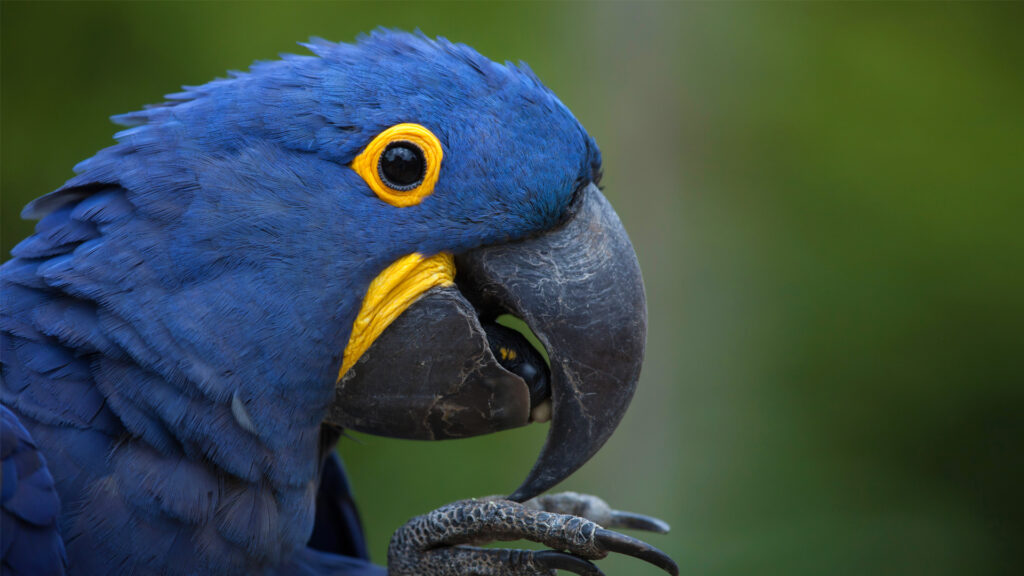
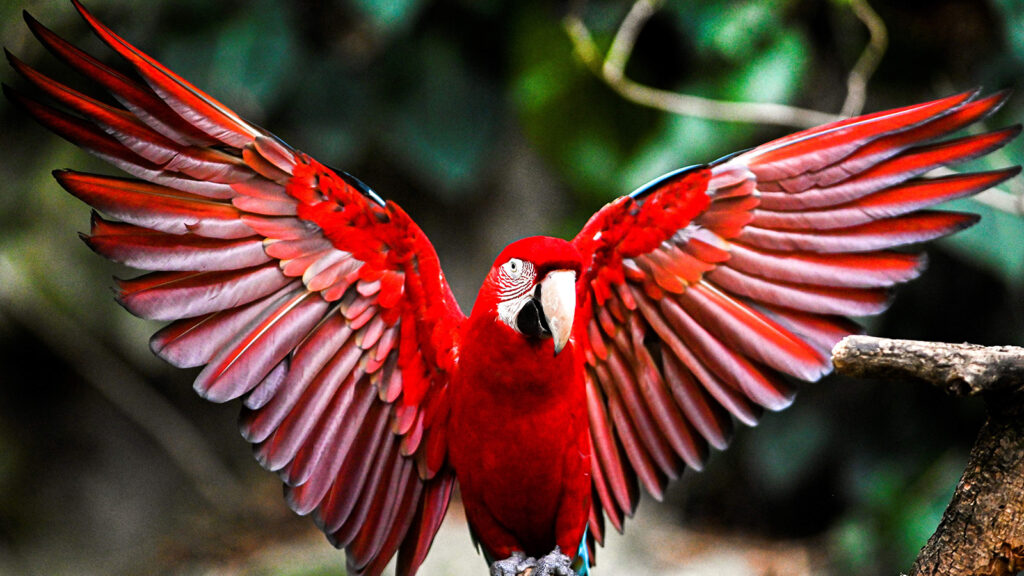
What to Expect from Your Macaw
Macaws require a great deal of attention and living space. Blue and Gold Macaws have a mischievous nature and are the most family – oriented macaw species, even though they may be nervous around strangers. Although Scarlet Macaws tend to bond with an individual person, they can be untrustworthy and nippy with anyone. Green – winged Macaws are less intimidating and calmer but can be very loud. Macaws have limited ability to mimic words. Their vocalizations are expressed primarily as loud shrieks and squawks, especially in the early morning and late afternoon. Macaws are relatively difficult to breed (with the exception of Blue Golds) but the offspring are easy to hand raise. Macaws become aggressive and protective when fed and set up to breed. Many pet birds are not trained, are spoiled and fed foods that make them think they are going to breed and they become aggressive. This often escalates to feather picking. These reasons are the basis for not recommending big macaws as pets. Macaws are commonly filling up shelters for unwanted birds.
What Do Macaws Do All Day?
Macaws are playful and love to chew, but they can be very destructive. Any toys must be free of toxic metals, hooks, sharp objects and easily consumed components. Providing large diameter fresh – cut branches from non – toxic, pesticide – free trees is suggested for macaws. Check with your veterinarian for recommendations on locally available safe trees.

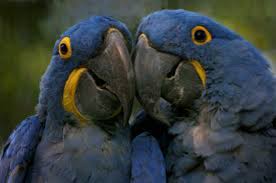
Is Your Macaw a Male or a Female?
In most macaw species it is difficult to distinguish male from a female based on physical characteristics; therefore, endoscopy or laboratory methods must be used for sex determination in breeding facilities.
What Your Vet Looks For in a Healthy Macaw
Dry, Open, Nares Smooth Beak, Even, Reptilian Pattern on the Feet Nails of Appropriate Length Alert, Erect Posture Smooth, Bright Feathers Without Color Breaks, Transparency or Ragged Edges Body Free of Lumps or Bumps Clear, Bright Eyes (No Discharge) Vital Statistics Body length: 12-39 in Body weight: 200-1500 g Maximum life span: 50 yr Age of sexual maturity: mini 4-6 yr; large 5-7 yr Average life span: 6-10 yr|
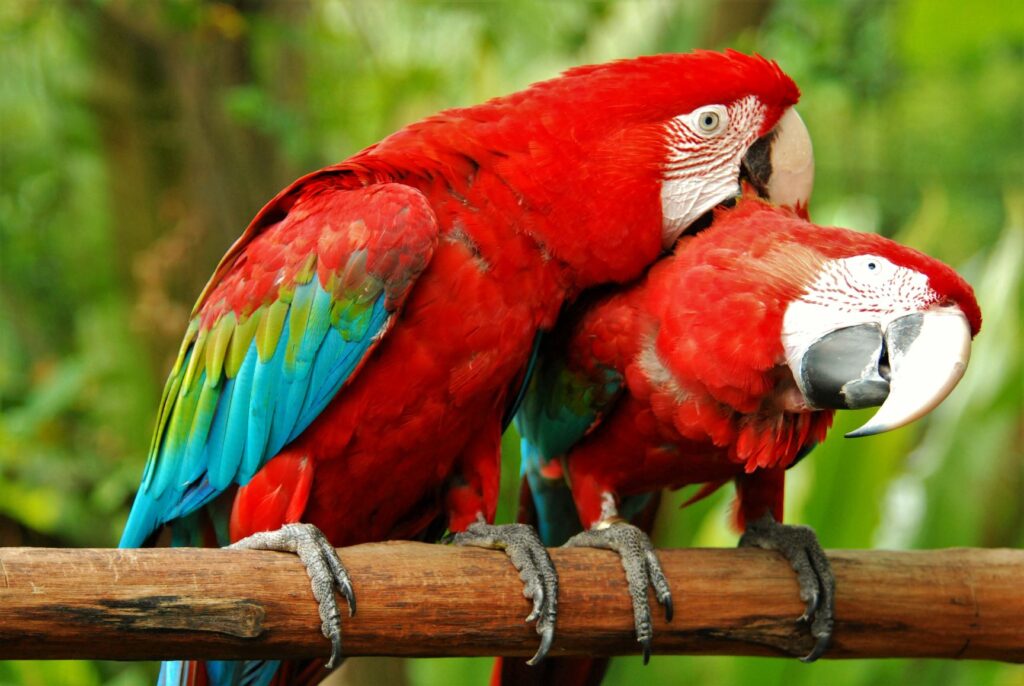
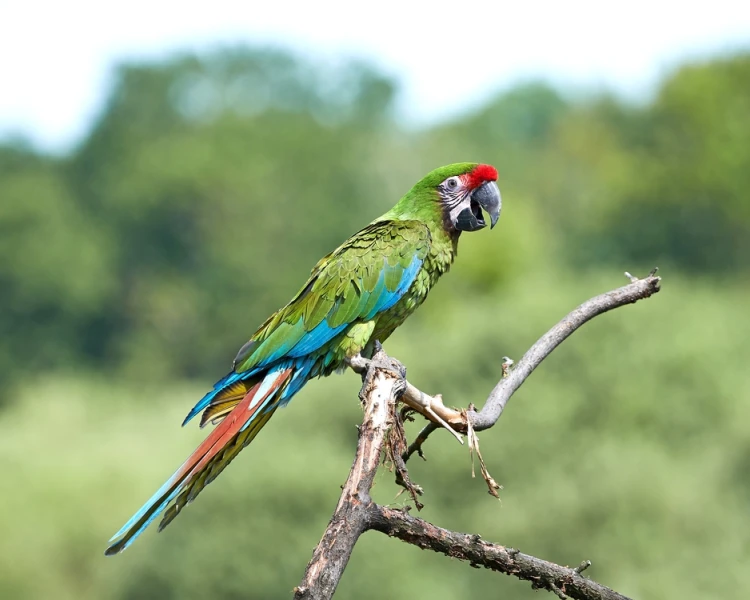
Are Macaws Tame?
Young, hand – raised macaws adapt readily to new surroundings and handling procedures. They should be exposed early in life to novel situations (car travel, hospital visits, multiple visitors in the household, other household pets) so that they are well adjusted to these events. However, behavior abnormalities are common. Imprinted hand – raised babies may scream for attention and frequently become feather pickers. Social regurgitation to family members may be pronounced. Discipline, leadership, patience, hooding (covering the head), a sense of ritual and the offering of rewards are necessary to modify the behavior of macaws.

How to Identify Your Bird
Two methods used to permanently mark companion birds for identification purposes are tattoos and microchips (both are injected under the skin). Individually number leg bands are not reliable for identification. Every bird has a unique scale pattern on the feet. Photographs of the feet (updated periodically as the bird ages) can be maintained in the bird’s record to confirm its identity and to prevent fraud that can occur with other techniques.
Housing for your Macaw should:
be as large as possible. be clean, secure, safe and easy to service. be constructed of durable, nontoxic material (avoid zinc). contain variablesized perches made of clean, nontoxic, pesticide-free tree branches. have food and water containers placed at opposite ends of the enclosure. avoid having perches located directly over food containers. contain toys and accessories that are moved around occasionally to prevent boredom and aggression. offer occasional opportunity
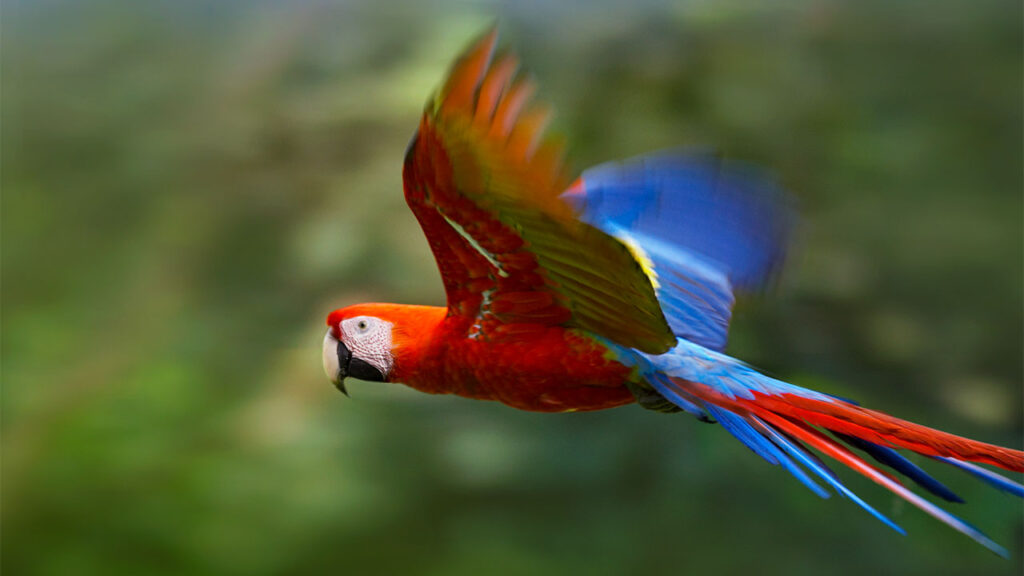
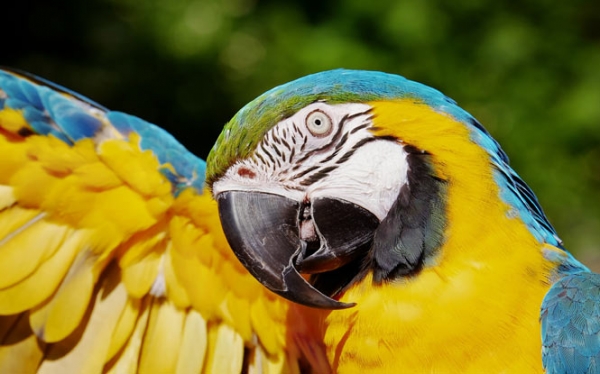
Macaws are very curious and will investigate anything new in their environment. That is why it is important to prevent their access to:
ceiling fans hot cooking oil Teflon coated items (overheated) leg chains sandpaper – covered perches tobacco and cigarette smoke chocolate, avocado, salt, alcohol toxic houseplants pesticides toxic fumes easily dismantled toys dogs, cats, and young children cedar, redwood and pressure treated wood shavings sources of lead or zinc .
Most Common Diseases in Macaws
Neuropathic gastric dilatation Reproductive disorders Feather picking and feather cysts Oral and cloacal papillomatosis Mutilation syndrome Chlamydiosis Bacterial and viral infections Drug sensitivities Allergies Toe deformities in young macaws Acne (ingrown facial feathers) Respiratory infections Multicolored feathers. Some diseases in macaws are the result of malnutrition. Visiting your avian veterinarian for routine health checks will help prevent many diseases and support you in having a long, satisfying relationship with your macaw.

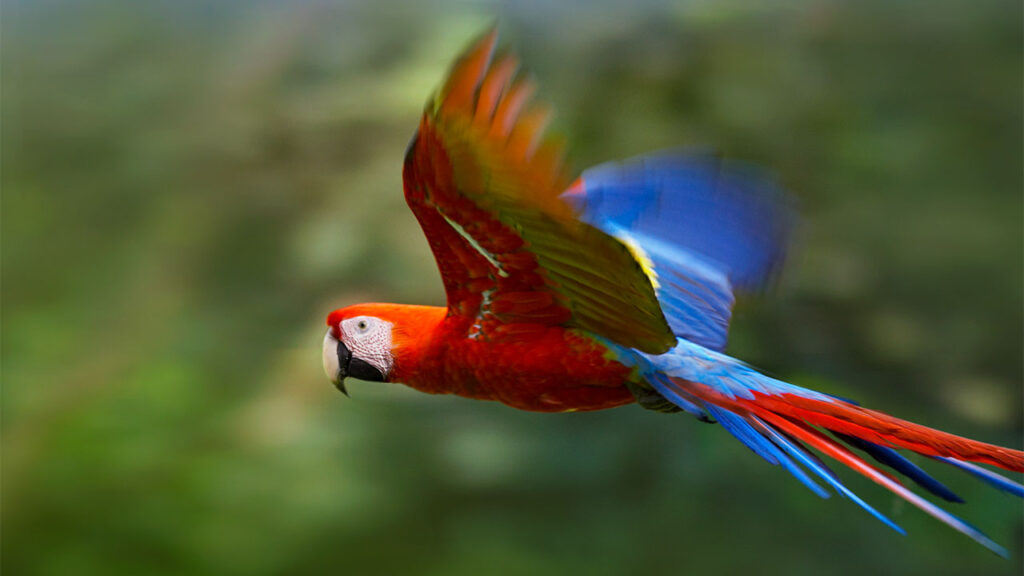
How to Keep Your Macaw Healthy, Happy and Safe!
Give intense leadership training. Avoid foods that stimulate breeding behaviour, such as high oil items (nuts, seeds) sweet fruit and vegtables (sweet corn, apple, citrus). Feed a fresh, high quality, toxin – free formulated diet like Harrison’s Coarse Grind Formulas with limited daily supplementation of chopped vegetables and fruit according to the instructions on the back of the bag. Grit is probably not necessary with modern captive diets. Provide clean, fresh, uncontaminated water (try using water bottles). Remove and replace food and water containers twice daily to maximize activity in a healthy bird. Provide occasional opportunity for bath, shower, or misting (at least twice weekly). Avoid spraying the house with insecticides.
[save_as_pdf_pdfcrowd]

